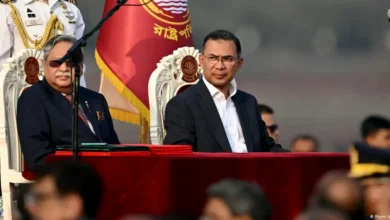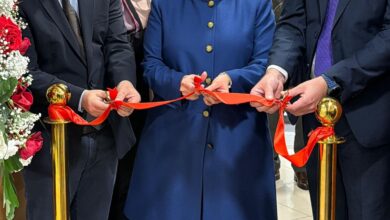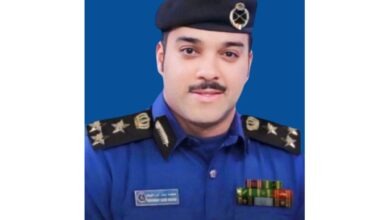Bringing together policy, empathy, and real-world impact
This week in our ongoing series on ‘Honoring Women Reshaping World Diplomacy’, The Times Kuwait spoke with Ambassador of Turkey H.E. Tuba Nur Sonmez on the crucial role that women diplomats play in influencing discourse and actions on key global issues.

The Times Kuwait Report
What inspired you to pursue a career in diplomacy?
I come from a country at the crossroads of Europe, the Middle East, the Caucasus, and the Balkans. Growing up in Türkiye in the 1990s, I witnessed the world grapple with wars and humanitarian tragedies—from the Gulf War to the conflicts in the Balkans and the Caucasus.
I remember the horror of the genocides in Srebrenica and Rwanda, where civilians suffered unimaginable violence. These events shaped my early understanding of international politics—not as something distant or theoretical, but as a deeply human responsibility. They drove home the importance of diplomacy in preventing conflict, protecting civilians, and upholding international norms.
Before entering the Turkish Ministry of Foreign Affairs, I worked with civil society organizations and joined some missions in various parts of Sub-Saharan Africa. Working in challenging field conditions gave me first-hand insight into humanitarian needs, development struggles, and the strengths and limitations of international cooperation. Later, during my time at the Presidency of the Republic of Türkiye, I travelled abroad frequently and worked closely with diplomats and international counterparts. These experiences deepened my belief that diplomacy is one of the few fields where policy, empathy, and real-world impact can come together.
What challenges have you faced as a woman in diplomacy, and how did you overcome them?
Across the world, including in Western countries, women entered the diplomatic profession much later than men. It wasn’t until the 20th century that meaningful participation of women began, and progress came gradually. Türkiye, in this regard, is not in a bad position. Today, many women serve as ambassadors and hold senior roles in the Turkish Ministry of Foreign Affairs. Every year, many new female diplomats join the service, bringing energy and perspective.
Still, the old view that diplomacy is a man’s profession has not disappeared entirely. It surfaces from time to time, even if less than before. In some settings, women may still feel the need to prove themselves more clearly. In my experience, the best response has been to stay focused, consistent, and professional. Over time, dedication and quality make a lasting impression. I am optimistic that women will overcome all such difficulties.
What advice would you give young women aspiring to join the foreign service?
You can start by observing experienced diplomats. Watch how they handle complexity, pressure, and decision-making. There is much to learn from their approach. But you don’t have to follow the exact same path. The world has changed—and continues to change. Diplomacy today requires new skills, sharper instincts, and broader awareness.
We live in an era shaped by digital diplomacy, social media, and rapidly advancing technologies like artificial intelligence. Today’s threats are no longer local or predictable. They are hybrid, cross-border, and global, ranging from cyberattacks to climate risks to food/energy security and disinformation. We are also witnessing the devastating consequences of armed conflicts and military escalation across multiple regions: Israel’s genocide in Gaza; Israel’s aggression in the West Bank, Lebanon, parts of Syria, and Iran; the ongoing war in Ukraine; and the long-standing instability in other parts of the world.
In this complex environment, women have a growing role to play. Our First Lady, H.E. Emine Erdoğan, is a powerful example of how women can influence international agendas beyond formal titles. Her work on environmental protection, women’s empowerment, and humanitarian efforts—especially the globally recognized ‘Zero Waste’ initiative—has reached the United Nations and inspired global action.
As a woman in diplomacy, your role goes beyond national representation. You help shape a more inclusive and cooperative world. Never underestimate the value you bring.
Can you share a moment when you felt you made a meaningful impact through your diplomatic work?
One of the most meaningful moments in my career in Foreign Affairs was after the devastating earthquakes that hit Türkiye on 6 February, 2023. As Turkish Ambassador in Kuwait, I worked closely with our team to coordinate aid efforts, drawing on my previous civil society experience to ensure fast and effective action. We mobilized resources, engaged with local partners, and supported every channel of assistance.
Kuwait responded with remarkable solidarity. The government established an air bridge, and generous contributions came from both institutions and individuals. I had the honor of visiting the earthquake zone aboard one of the Kuwaiti aid aircraft, together with then-Minister of Social Affairs, Mai Al-Bagli. As a woman diplomat, standing alongside another woman leader in a moment of shared compassion was especially powerful. It reminded me that diplomacy, at its core, is about people helping people.
What leadership qualities do you believe are essential for success in this field?
Resilience and clarity are essential. In diplomacy, especially in complex or high-pressure situations, it is important to stay calm, communicate clearly, and lead with strategic direction. Empathy also matters. Good leadership must remain grounded in human experience and emotional intelligence.
Adaptability is critical in a fast-changing world. A strong diplomatic leader must stay informed about global trends, from digital diplomacy and climate risks to new security challenges. Humility and the ability to keep learning are also equally important.
Diplomacy also requires patience and discretion. Some of the most impactful outcomes happen quietly, behind the scenes. The ability to listen carefully, build trust over time, and manage long-term relationships is often more valuable than immediate results.
How can diplomacy better reflect the diversity of the societies it represents?
Diversity is not just about equity—it helps build stronger, more effective connections with the societies we serve. For diplomacy to reflect today’s world, representation must go beyond symbolism. More women and more voices from different regions and backgrounds are needed. I believe the diplomatic corps should reflect that reality.
Earlier in my career, I had the opportunity to work with civil society organizations, including those focused on Least Developed Countries (LDCs). I witnessed firsthand how women contribute meaningfully both in the field and at the decision-making table—and how real change often comes through the hands of women, whether in humanitarian coordination or global advocacy.
Women working in civil society, humanitarian organizations, and similar spaces are not just participants—they are agents of positive change. This is the same in diplomacy. We must strengthen women’s participation in decision-making processes, and when we do, all of society benefits.












